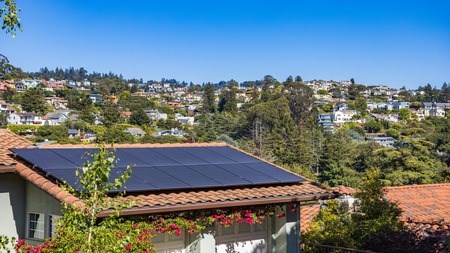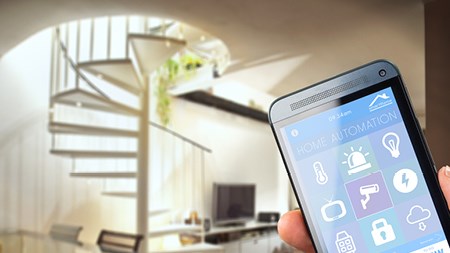The basic description of solar energy is the conversion of sunlight into electricity. It is the most abundant form of energy on earth, and ultimately costs very little when compared to sourcing power from the national grid.
Solar systems used in homes can:
- Provide full power to the home without the need to connect to the national grid.
- Serve as backup systems when load shedding kicks in.
- All require the use of photovoltaic panels (PVs).
On- or Off-grid
There are two types of solar system set-ups:
- Off-grid: You completely disconnect your home from the national grid, and solely operate on power generated from the sun.
- Grid-tied: means you continue to be connected to the national grid, but also use a solar system which kicks in during power outages and load shedding.
How solar systems work
The process of converting the sun’s power for use in our home, has a number of steps and hardware requirements:
Photovoltaic panels: These glasslike panels, which are usually mounted on the roof of a house, are designed to attract the electromagnetic energy radiated by the sun. They absorb the rays of sunlight that are made up of photons, which are then processed and transformed into direct current (DC) electricity.
Inverters: Our homes and devices run on alternating current (AC), which means that before we can use the DCpower generated by the PVs, it needs to be converted to AC. This is done through an inverter.
Batteries: Inverters move the AC power to batteries to be stored, and which supply power either to the entire home, or a select number of devices. Depending on your power needs you may have a number of batteries running in series with one another, and this applies to both on- and off-grid systems.
Quantity of power
Your solar power requirements are based on your unique needs and circumstances. For example, do you want to take your home completely off-grid or use it only during load-shedding? Either way, to work out how much power you need is best determined by a professional. What they look at is:
Kilowatt (kW) or wattage usage: This is a measurement of electrical power. All electrical devices have a kilowatt need to function; the higher the kW of a device, the more electrical power is required. One kWh is equal to the consumption of 1000 watts per hour.
Solar panels come in a variety of sizes and efficiencies. Typically residential solar panels are rated to produce 250 - 450 watts per hour of direct sunlight. The most common power rating used is 400 watts, based on efficiency and affordability. A 400 watt panel receiving four and a half hours of sunlight a day, will produce around 1 800 watt-hours of DC electricity per day.
Advantages and disadvantages of a solar system
Pros
Renewable energy source, meaning you can harvest the sun’s rays for energy over and over without depleting the source.
Lower electricity bills: For properties that are completely off the grid, a solar system will eventually pay for itself, and ongoing maintenance and repair will be a fraction of what you are currently paying for municipal power.
Remote living: If you live in a rural or remote location, solar power systems generate the power you need when you can’t be connected to the grid.
Improves property values: Homes that have solar installations are in demand and usually fetch a premium.
Cons
High-up front costs: The initial installation can be quite costly, but once installed the savings on your municipal bill will realise a return on your investment.
Space: Solar systems, particularly the PVs mounted on roofs, can take up a lot of space.
Storage: Battery replacement is the single most expensive component of a solar power system.
Weather: Although unlikely in South Africa, weather can impact on the production of power. Bear in mind that the solar panels do not generate power at night, this is why batteries are crucial.
Read the following Private Property complimentary articles:




